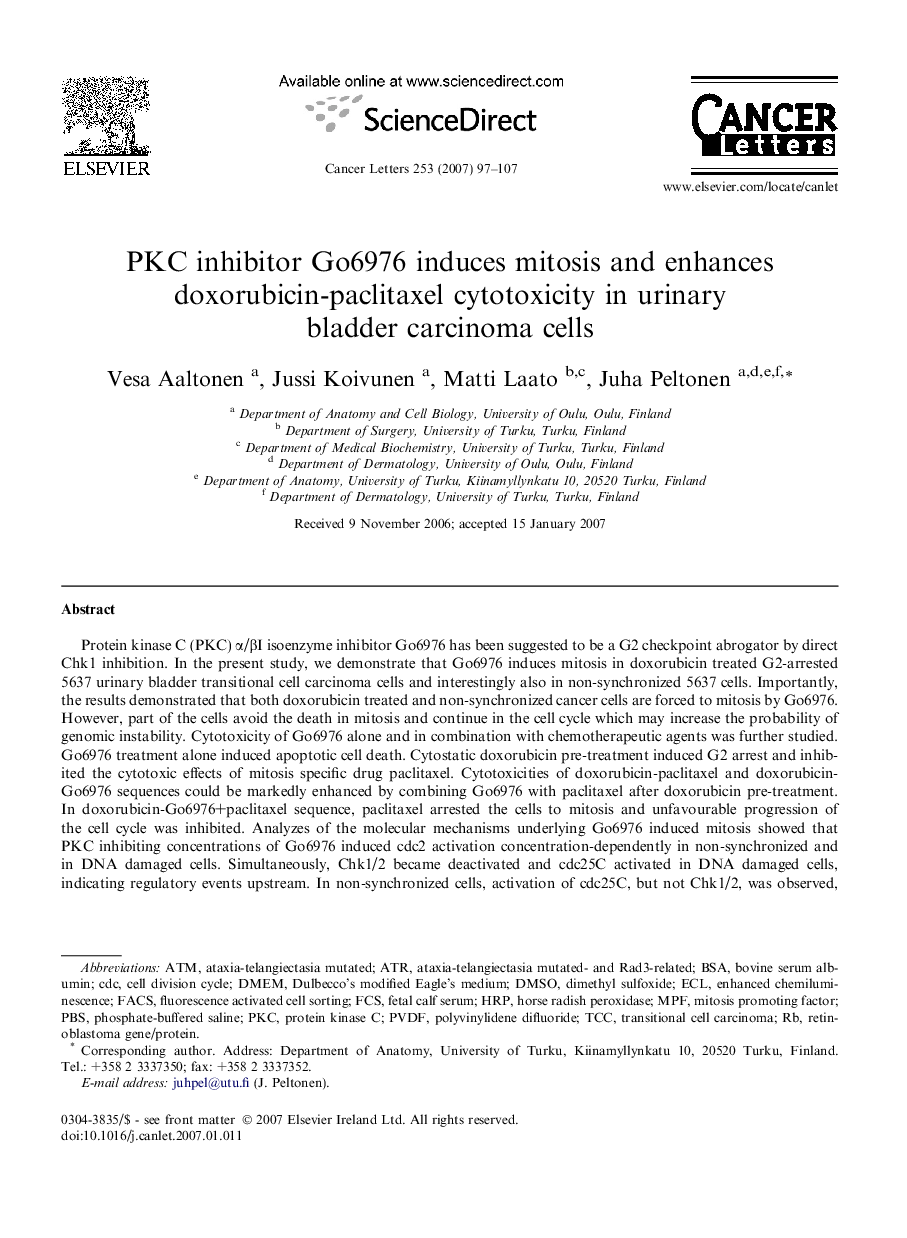| Article ID | Journal | Published Year | Pages | File Type |
|---|---|---|---|---|
| 2116811 | Cancer Letters | 2007 | 11 Pages |
Protein kinase C (PKC) α/βI isoenzyme inhibitor Go6976 has been suggested to be a G2 checkpoint abrogator by direct Chk1 inhibition. In the present study, we demonstrate that Go6976 induces mitosis in doxorubicin treated G2-arrested 5637 urinary bladder transitional cell carcinoma cells and interestingly also in non-synchronized 5637 cells. Importantly, the results demonstrated that both doxorubicin treated and non-synchronized cancer cells are forced to mitosis by Go6976. However, part of the cells avoid the death in mitosis and continue in the cell cycle which may increase the probability of genomic instability. Cytotoxicity of Go6976 alone and in combination with chemotherapeutic agents was further studied. Go6976 treatment alone induced apoptotic cell death. Cytostatic doxorubicin pre-treatment induced G2 arrest and inhibited the cytotoxic effects of mitosis specific drug paclitaxel. Cytotoxicities of doxorubicin-paclitaxel and doxorubicin-Go6976 sequences could be markedly enhanced by combining Go6976 with paclitaxel after doxorubicin pre-treatment. In doxorubicin-Go6976+paclitaxel sequence, paclitaxel arrested the cells to mitosis and unfavourable progression of the cell cycle was inhibited. Analyzes of the molecular mechanisms underlying Go6976 induced mitosis showed that PKC inhibiting concentrations of Go6976 induced cdc2 activation concentration-dependently in non-synchronized and in DNA damaged cells. Simultaneously, Chk1/2 became deactivated and cdc25C activated in DNA damaged cells, indicating regulatory events upstream. In non-synchronized cells, activation of cdc25C, but not Chk1/2, was observed, suggesting inactivation of c-TAK1. The results of the current study suggest that Go6976 has a synergistic cytotoxic effect when combined with doxorubicin and paclitaxel.
